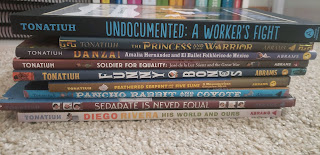Ahead of Fire Safety Month: Partnering with Fire Departments
While we were all teaching online, many of us reached frustration points when we heard the chirping of smoke detectors in our students' homes that signaled that they needed to replace their batteries. I heard it too, as I taught students through the computer screen, and yes- my dog went wild when he heard it. We can acknowledge the frustration. We can certainly remember how it gave us headaches during our hours of online instruction. However, we can also empathize with families. Think of how that chirping likely disrupted sleep patterns during an already heavy time. Every time I saw a social media post about the chirping smoke detectors and how annoying it was for us as teachers, it got under my skin. I made a few posts on my social media feeds about purchasing batteries and sending them to families- and then I received some backlash for them, saying that doing that was beyond our role. Well, it is late September, and next month is Fire Safety Month. Most fire departm...



